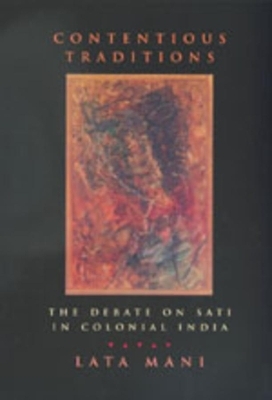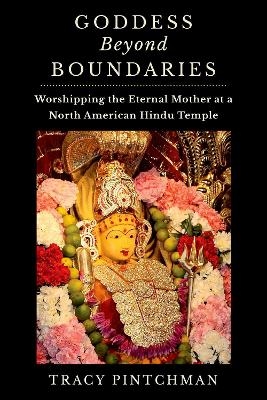
Contentious Traditions
The Debate on Sati in Colonial India
Seiten
1998
University of California Press (Verlag)
978-0-520-21407-1 (ISBN)
University of California Press (Verlag)
978-0-520-21407-1 (ISBN)
Analyzes the debate on sati, or widow burning, in colonial India. This book argues that the women who were burned were marginal to the debate and that the controversy was over definitions of Hindu tradition, the place of ritual in religious worship, the civilizing missions of colonialism and evangelism, and the proper role of the colonial state.
"Contentious Traditions" analyzes the debate on sati, or widow burning, in colonial India. Though the prohibition of widow burning in 1829 was heralded as a key step forward for women's emancipation in modern India, Lata Mani argues that the women who were burned were marginal to the debate and that the controversy was over definitions of Hindu tradition, the place of ritual in religious worship, the civilizing missions of colonialism and evangelism, and the proper role of the colonial state. Mani radically revises colonialist as well as nationalist historiography on the social reform of women's status in the colonial period and clarifies the complex and contradictory character of missionary writings on India. The history of widow burning is one of paradox. While the chief players in the debate argued over the religious basis of sati and the fine points of scriptural interpretation, the testimonials of women at the funeral pyres consistently addressed, the material hardships and societal expectations attached to widowhood. And although historiography has traditionally emphasized the colonial horror of sati, a fascinated ambivalence toward the practice suffused official discussions.
The debate normalized the violence of sati and supported the misconception that it was a voluntary act of wifely devotion. Mani brilliantly illustrates how situated feminism and discourse analysis compel a rewriting of history, thus destabilizing the ways we are accustomed to look at women and men, at 'tradition', custom, and modernity.
"Contentious Traditions" analyzes the debate on sati, or widow burning, in colonial India. Though the prohibition of widow burning in 1829 was heralded as a key step forward for women's emancipation in modern India, Lata Mani argues that the women who were burned were marginal to the debate and that the controversy was over definitions of Hindu tradition, the place of ritual in religious worship, the civilizing missions of colonialism and evangelism, and the proper role of the colonial state. Mani radically revises colonialist as well as nationalist historiography on the social reform of women's status in the colonial period and clarifies the complex and contradictory character of missionary writings on India. The history of widow burning is one of paradox. While the chief players in the debate argued over the religious basis of sati and the fine points of scriptural interpretation, the testimonials of women at the funeral pyres consistently addressed, the material hardships and societal expectations attached to widowhood. And although historiography has traditionally emphasized the colonial horror of sati, a fascinated ambivalence toward the practice suffused official discussions.
The debate normalized the violence of sati and supported the misconception that it was a voluntary act of wifely devotion. Mani brilliantly illustrates how situated feminism and discourse analysis compel a rewriting of history, thus destabilizing the ways we are accustomed to look at women and men, at 'tradition', custom, and modernity.
Lata Mani is an Indian feminist and historian who currently lives in California.
LIST OF ILLUSTRATIONS
PREFACE
ACKNOWLEDGMENTS
INTRODUCTION
1 Equivocations in the Name of Tradition: The Official Debate on Widow Burning
2 Abstract Disquisitions: Bhadralok and the Normative Violence of Sati
3 Missionaries and Subalterns: Belaboring Tradition in the Marketplace
4 Traveling Texts: The Consolidation of Missionary Discourse on India
5 The Female Subject, the Colonial Gaze: Eyewitness Accounts of Sati
AFTERWORD
NOTES
GLOSSARY
BIBLIOGRAPHY
INDEX
| Erscheint lt. Verlag | 30.12.1998 |
|---|---|
| Zusatzinfo | 5 b&w illustrations. |
| Verlagsort | Berkerley |
| Sprache | englisch |
| Maße | 152 x 229 mm |
| Gewicht | 408 g |
| Themenwelt | Geisteswissenschaften ► Archäologie |
| Geisteswissenschaften ► Religion / Theologie ► Hinduismus | |
| Sozialwissenschaften ► Ethnologie ► Volkskunde | |
| Sozialwissenschaften ► Soziologie | |
| ISBN-10 | 0-520-21407-2 / 0520214072 |
| ISBN-13 | 978-0-520-21407-1 / 9780520214071 |
| Zustand | Neuware |
| Haben Sie eine Frage zum Produkt? |
Mehr entdecken
aus dem Bereich
aus dem Bereich
Worshipping the Eternal Mother at a North American Hindu Temple
Buch | Hardcover (2024)
Oxford University Press Inc (Verlag)
79,80 €


